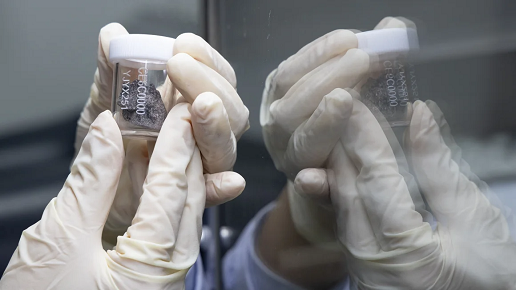[Taiwan Immigrants’ Global News Network] cooperates with the [Happiness in North Taiwan] of National Education Radio to report the stories of new immigrants in Taiwan. This episode "Wu Shi Yun: I grew rambutan (chòm chóm) in Taiwan (Part 2)" (broadcast on National Education Radio on July 30) invites Wu Shi Yun from Haiphong, Vietnam to share life of her married to Taiwan, and the story of growing all kinds of Southeast Asian fruits, interviewed by the hosts Chen, Ya-Yu and Chen, Yu-Shui. 18 years ago, Wu Shi Yun came to Taiwan to worked as a translator and met her husband. When she was about to return to Vietnam, her husband began to passionately pursue her, and even pursued her all the way to Vietnam for love.
"If you marry me, do you want to come back to Taiwan?" Wu Shi Yun agreed and returned to Taiwan to settle in Chiayi. She also learned to grow fruits, hoping to bring the taste of hometown to friends in Southeast Asia.
5 languages including Chinese, English, Vietnamese, Thai and Indonesian were translated and written on [Taiwan Immigrants’ Global News Network] so that more readers and listeners can understand the life of the new immigrants in a foreign country better.
In the interview, Wu Shi Yun mentioned that after she married Chiayi, she visited a fruit expert’s house which arouse her curiosity about the various tropical fruits in the orchard and wondered "How can you grow fruits from our hometown in Taiwan?"
The expert shared the story with her, and it turned out that the expert had traveled to Southeast Asian countries and found that the local fruits were delicious, so he tried to introduce, plant and graft them. Wu Shi Yun grew up in an environment where fish and vegetables were raised, and it happened that there was a piece of land from her father-in-law, so she decided to start farming in Taiwan.
1222.jpg)
Wu Shi Yun integrates into life in countryside, develops interest and makes many friends. Picture reproduced from National Education Radio
At that time, Wu Shi Yun took her young child to a community college, which included many courses in organic agriculture and hydroponic cultivation. After getting to know many teachers, she has developed interest in growing fruits. Through years of hard work and improvement, she finally produced fresh and plump Southeast Asian fruits, one of which is the popular rambutan. "I hope the Southeast Asian friends in Taiwan can taste the fruits from home!" The host immediately responded: "I once bought rambutan from her, and when I ate it for the first time, I was so moved that I almost cried!"
When recalling the connection with Taiwan, Wu Shi Yun shared that there was a time when many Taiwanese men went to Vietnam to get married. She often asked to be an interpreter because of her great language ability in Chinese which arouse her curiosity about Taiwan from other people’s descriptions and she once imagined the possible appearance of life in Taiwan in her mind. The agency invited her to work in Taiwan, "I thought, great, let’s have a look in Taiwan." And thus, she met her husband.
Wu Shi Yun could not really get used to the diet habit of Taiwan when she came work in Taiwan for the first time, because she used to eat spicy and sour flavors in Vietnam. But there were not many Vietnamese restaurants in Taiwan at that time, and the tastes of Taiwanese were relatively flat, so she ate "very painfully." Later, when Wu Shi Yun dined out, she always hid with a small bottle of fish sauce and chili sauce. The host laughed and said, "It's so cute."
In addition, after Wu Shi Yun came to Taiwan, she was not used to the life without friends, so she decided to return to Vietnam. Unexpectedly, her husband went to Vietnam and proposed to her. At that time, she even confirmed to her husband again: "Is it for real?" "of course, it is." Her husband responded.
When she returned to settle in Taiwan again, Wu Shi Yun’s husband went to the airport to pick her up. The car drove farther and farther away, and the scenery outside the window became more and more remote. Only then did she realize that her husband’s hometown is in the mountainous area of Chiayi City. “When I first arrived, I wanted to say, Wow, I feel frauded." She also joked with her friends in Taipei that the most bustling place here is the convenience store.
"Then how did you adapt to the new environment?" The host asked curiously, Wu Shi Yun said that she would take her children and give a ride with scooter on the mountains to enjoy the scenery, and also mentioned that life in the countryside is quite special and fun. She believes that she must find the joy of life on her own, after getting to know many people gradually, she will not feel tough in life.
Wu Shi Yun also shared that the very first friend she made when he came to Taiwan was the neighbor. When she first arrived in the country, she was bored and wandered around by the door all day, so the neighbor started to chat with her, and she also learned Taiwanese from the neighbor, "When my mother came to Taiwan, she took my mother to the park and shopping for groceries, the two of them can even communicate only with gestures, and my mother can't help but praise her for being so kind."
The host mentioned in the end that Wu Shi Yun was like a chameleon to her. When she came to a new environment, she would change with the environment, and could integrate into life and live happily.
Listen to the The episode of "Wu Shi Yun: I grew rambutan (chòm chóm) in Taiwan (Part 2)" ,[Happiness in North Taiwan] of National Education Radio for more stories.

1222.jpg)





